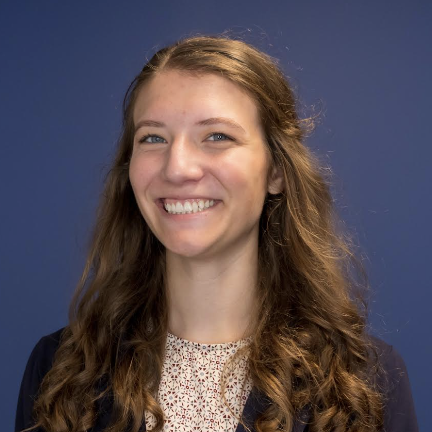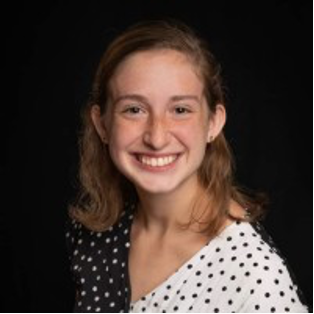Session 2: 11:45 AM - 1:15 PM
Panel A: Today’s Classrooms: Alternative Approaches to Education Addressing Modern Barriers
Moderator: Patrizio Piriano

Modern-Day "Machucas:" Researching Real-Time Experiences of Low-Income Students at Saint George's College
Lauren Ostdiek, University of Notre Dame
Abstract
Chile places near the top in global inequality rankings, an issue that was brought to light in 2019 during the country's Estallido social, or social outbreak (OECD). Though Chile boasts a robust school choice system, some remain completely private, exclusive to those who can afford them—indubitably, schools are an important influencer for social mobility. Students who attend high-ranking, high-SES schools tend to have high earnings later in life, so one potential option to mitigate inequality is to increase access to these schools; Saint George’s College, a K-12 school in Santiago, initiated a program to do this starting in 2022.
Because feeling a sense of belonging in one’s classroom is vital to student success, this study aims to understand the experiences of low-income students who began attending this school via this program (Osterman 2010). My research uses ethnographic methods with a deductive analytic framework to discern the role peers and teachers do/can play in the well-being of integrated students.
Throughout four weeks in June of 2022, I observed students in the program (n=9) across 4 classrooms during school hours. Few programs of this nature have been studied, though previous research points to the benefits of cross-group interactions (Allport 1954). Through observations and informal conversations with teachers and administrators, I find teachers can facilitate these cross-group interactions for the benefit of all students while also anticipating isolating circumstances for integrated students, contributing to their sense of belonging in the classroom. These results provide points of emphasis for school leaders to promote all students’ success.

Yachay Kawsay: Multilingual Intercultural Education Project in Loja, Ecuador
Hannah M Rethmeier, University of Nebraska-Lincoln
Abstract
Intercultural bilingual education programs have molded the field of Ecuadorian education for decades. These programs recognize the importance of education as a means of revitalizing languages and cultures in a plurinational state. Many of these schools teach Kichwa, the most-spoken indigenous language in Ecuador, and Spanish, the national language. One of these such programs, Yachay Kawsay, in a southern city in Loja, teaches Kichwa, Spanish, and English to adults and children, emphasizing the cultural practices of each one. A multilingual school with an emphasis on the three temporal spaces of history in Ecuador (precolonialization, colonization, and modern) is revolutionary and impactful on the community. In this work, my principal discovery is the impact multilingual intercultural education has on the themes of inclusion, interculturality, and self-acceptance using the social ecological perspective, using the example of Yachay Kawsay. Evaluating these themes was made possible by living in Loja, conducting interviews with teachers and parents, and observing community events.
Perspectives of Key Stakeholders on Perceived Value Propositions of Vocational Education for Girls in Rural Uganda
Hannah Reynolds, University of Notre Dame
Abstract
According to UNICEF, 129 million girls are out of school worldwide, 67 million of which are out of upper secondary school. Secondary education offers the most benefits to individuals and communities, but it also suffers the most because of the barriers (financial, safety, and cultural) that older girls face. Once a girl is out of school for a variety of reasons, it is quite difficult for her to return; one solution that exists is technical and vocational education training(TVET). These programs ensure that girls are gaining the necessary skills for a career that will allow them to financially support themselves and their families. Northern Uganda has a deep rooted history of vocational school for girls due to the role these institutions played in reintegration for victims of the LRA. Today, however, there is a push in Uganda to increase TVET enrollment and quality. Through surveys, focus groups, and ethnographic research, with over 130 individuals, I examine how parents and students currently value vocational education as an opportunity for girls. The results showed that while parents desired for their daughters to attend university, due to resource constraints, they valued vocational school because of the low barriers to entry and the strong job placement. Additionally, students highlighted that vocational education was the most realistic education option for those who had children and/or were married. These results provide tangible policy solutions for schools and local educating bodies to pursue to improve vocational access and quality for girls in Northern Uganda.

Empowering Students of Agriculture and Integral Ecology to live more Sustainable and Dignified Lives in Rural Uganda
Ryan Murdock, University of Notre Dame
Abstract
To answer the question “how does a residential educational program in sustainable agriculture through the lens of Integral Ecology empower students to live more sustainable and dignified lives?” I spent two months at the Bethany Land Institute in Luwero, Uganda during the summer of 2022. I conducted eighteen surveys (one with each student) and twelve semi-structured interviews (one with all of the students whose English proficiency allowed for full conversation without a translator) in addition to extensive ethnography that came with living on site for the entire duration of the project.
After extensive ethnography through living in BLI’s community for seven weeks along with surveys, interviews, and countless more casual conversations; it was clear that BLI was improving the lives of its students through three primary and interconnected pillars: community, education, and a common goal for a better future. BLI’s school is a bright spot within Ugandan education. Only 40% of children are literate after primary school in Uganda and a large majority are victims of corporal punishment, even though it was outlawed in 2016. BLI provides caretakers with a higher quality of education than their primary and secondary schools and gives them the opportunity to put what they learn in the classroom into practice in the fields, which is uncommon even among agricultural programs in Uganda. In addition, BLI provides its students with a safe and supportive environment to receive that education. Finally, caretakers reported being far more hopeful and optimistic about the future after coming to BLI and practicing Integral Ecology. All of the people at BLI are united in the fight to protect the environment and to spread Integral Ecology throughout Uganda, and it provides them with concrete goals and motivations for their future after BLI,; something that most caretakers reported not having prior to enrollment.





